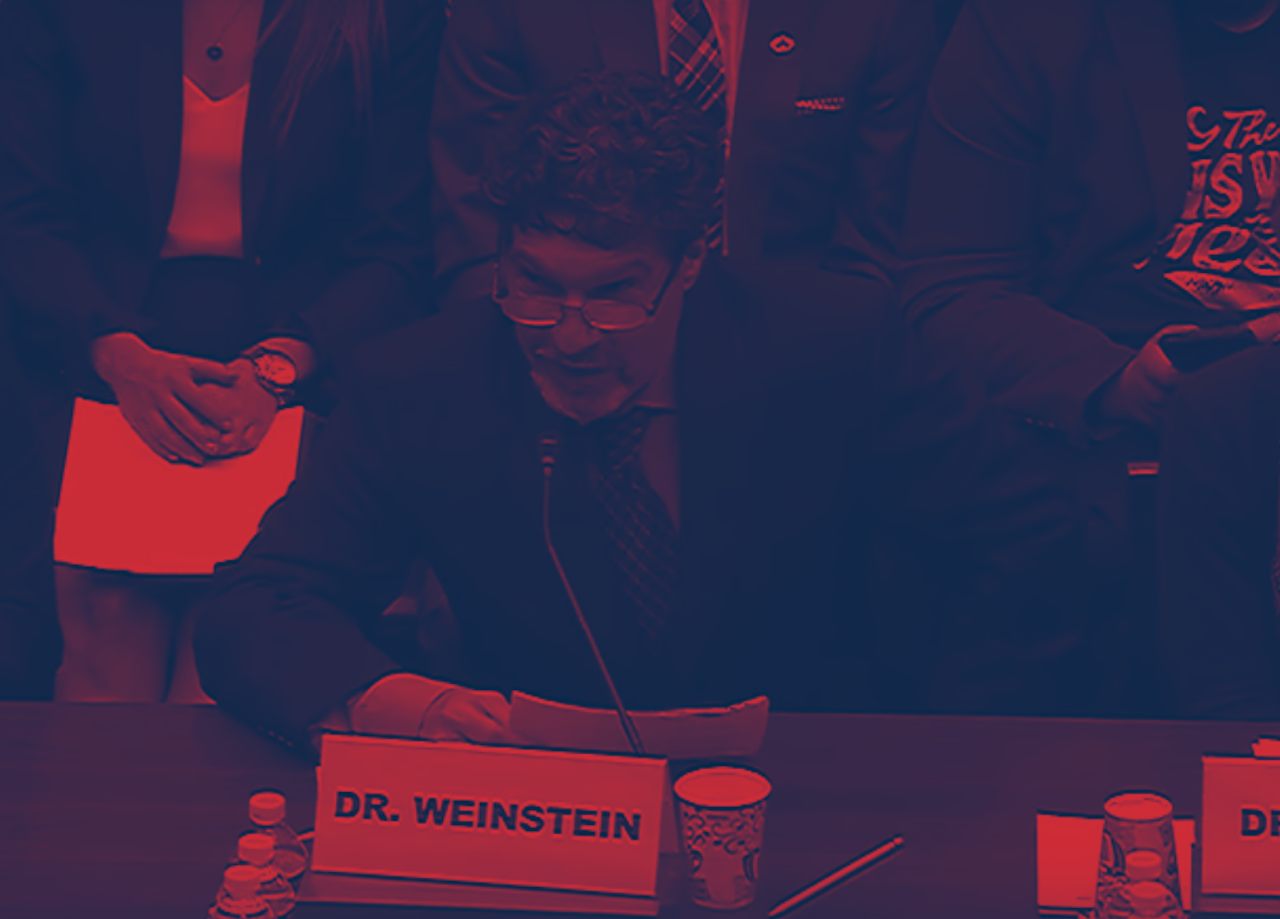It seems that these days, the only thing Republicans love more than “free speech” is pretending to get mad when their fellow conservatives’ free speech is even remotely threatened. This has yielded a wave of phony conservative outrage at isolated incidents of overenthusiastic college students protesting stuff, which has in turn led to Bret Weinstein, self-proclaimed “professor in exile” at Evergreen State University and a member of the “Intellectual Dark Web,” testifying in front of the House Oversight Committee about threats to free speech on college campuses.
Because Congress is controlled by Republicans, Weinstein appeared alongside Robert P. George, a far-right Princeton professor; Allison Stanger, the Middlebury College professor who was injured while escorting the racist intellectual Charles Murray through a protest; a representative of the Alliance Defending Freedom (identified by the Southern Poverty Law Center as an anti-LGBT hate group); and Shaun Harper, a member of the University of California’s Race and Equality Center who writes frequently about racial injustice and was the only smart person who’d been invited to speak.
Each speaker’s remarks were posted on the House Oversight Committee’s website, except for, curiously enough, Weinstein’s. However, the committee also posted a video of the hearing, which includes Weinstein’s remarks. He starts talking about 38 excruciating minutes in.
Weinstein’s testimony read like a Greatest Hits of the Intellectual Dark Web. He painted himself as a victim of runaway social justice culture. He omitted facts that, if accounted for, made him seem like kind of a dick. He spoke in hyperbolic language, offering nonsense like, “Am I alleging a conspiracy? No. What I have seen functions much more like a cult.” He used the word “logic,” and began a sentence by saying, “As a member of the Intellectual Dark Web...” Later on in the hearing, House Oversight Committee chairman Jim Jordan asserted that you can’t say, “Donald Trump is the President” on a college campus, and Weinstein did not challenge him. (Predictably, Jordan didn’t give USC’s Shaun Harper, the only person contesting the very premise of the hearing, the same treatment. At one point, Jordan tried to goad him into saying that there are cops who police people’s language on college campuses, and then acted really offended when Harper didn’t take the bait.)
From a certain vantage point, it feels like angry conservatives and members of the Intellectual Dark Web actually have an incentive to say and do things that provoke the ire of campus activists. After all, if college students hadn’t protested Bret Weinstein, then he wouldn’t get covered by the New York Times, be able to put up a well-funded Patreon page, or receive an invitation to speak before Congress about how he’s being oppressed by woke college kids. It’s almost like by claiming his free speech was violated, he’s only gotten more opportunities to be heard.
There was, however, one productive point made during the hearing. During his opening remarks, Shaun Harper offered a perspective that, given the histrionics whirling around him, may have unfortunately fallen upon deaf ears. Citing the fact that there are only a handful academics who, like Weinstein, have “experienced aggressive encounters with student activists,” it seems almost trivial to be devoting “so much national conversation [to] professors’ freedom of speech supposedly being under attack.” Instead, Harper offered, “Avoidance of deep learning about race and other dimensions of diversity, equity, and inclusion is the bigger, much more pervasive problem that ignites campus conflict.”
